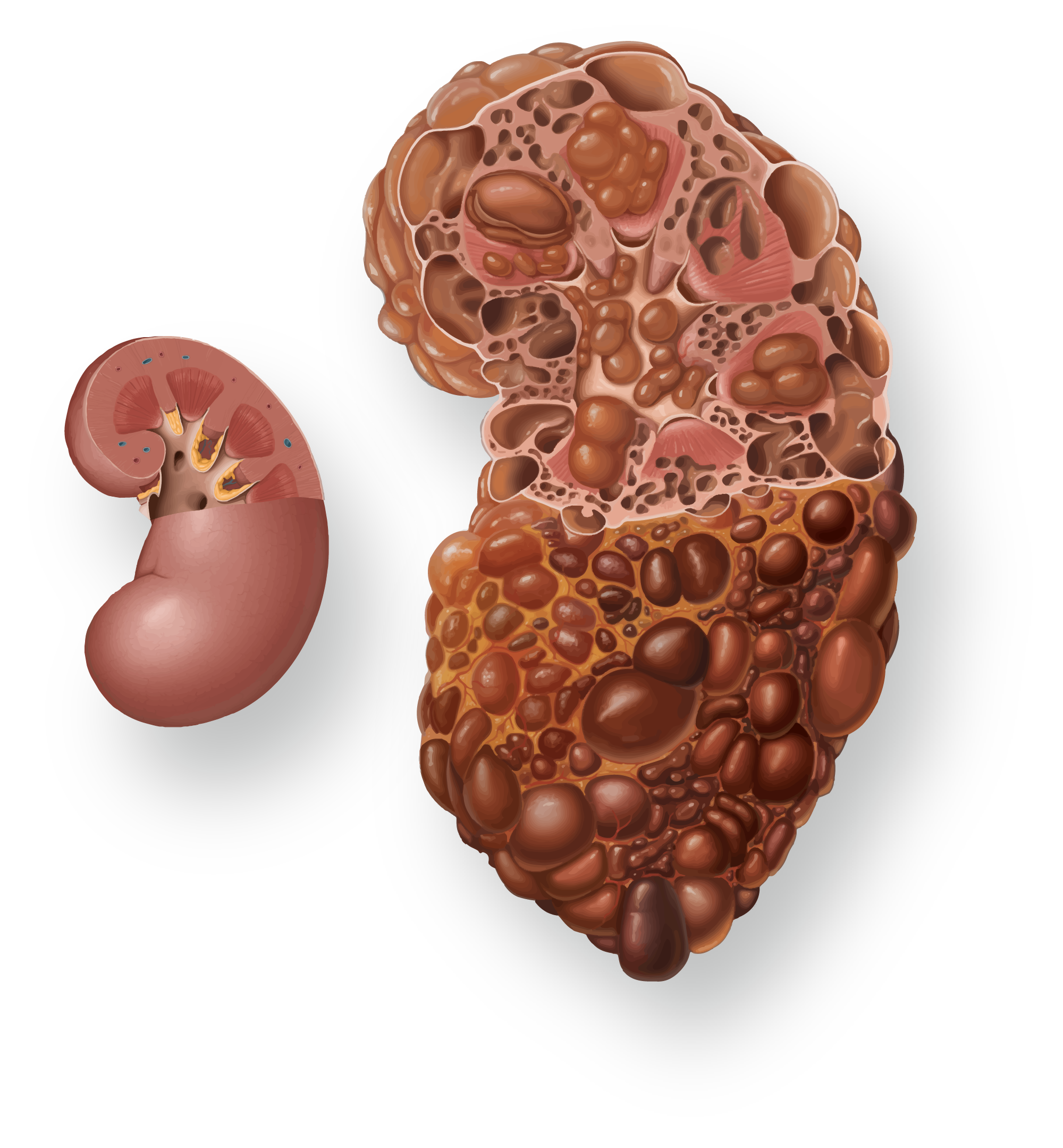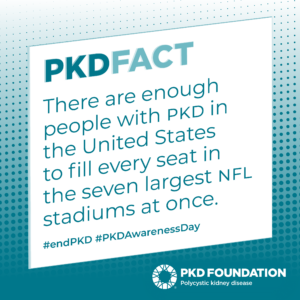On September 4th every year, we recognize PKD Awareness Day to spread the word about polycystic kidney disease (PKD). Will you raise your voice with us?
Day(s)
:
Hour(s)
:
Minute(s)
:
Second(s)
Spread
the word
What is PKD?
Polycystic kidney disease (PKD) is a chronic, genetic disease causing uncontrolled growth of fluid-filled cysts in the kidneys. As the cysts accumulate more fluid, they get bigger and bigger, destroying healthy tissue, which leads to high blood pressure, other complications, and often kidney failure.
A typical kidney is the size of a human fist and weighs about a third of a pound. Polycystic kidneys can be much larger, some growing as large as a football.

There are two types of PKD:
ADPKD is the more common type of PKD and is estimated to affect more than 600,000 Americans and 12.4 million people worldwide.
ARPKD is a rare form of PKD that occurs in 1 in 25,000 children worldwide.
There is no cure. But with the first treatment for ADPKD approved in 2018 and over a dozen treatments in the pipeline, there’s hope for a cure.
Get social
Wear & share teal

Get involved
Walk to #endPKD
Be a part of our largest fundraising and public awareness event. 100% of all donations go to PKD research!

Join the ADPKD Registry
Help drive the next medical breakthrough for ADPKD patients. You have the power to #endPKD.

Be an advocate

Volunteer
Volunteers are the heart of the PKD community. Our volunteers ensure that no one faces PKD alone. When you join our volunteer team, your time and efforts will impact the funds raised for PKD research.

Donate
About the PKD Foundation
We’re the only organization in the U.S. solely dedicated to finding treatments and a cure for polycystic kidney disease (PKD) and to improving the lives of those it affects. Since 1982, we’ve proudly funded more than 1,300 research projects and leveraged $1.5B in research funds, while serving our local communities across the country. We’re inspired by our mission. And driven by our vision.
Our mission
WE GIVE HOPE. We fund research, advocate for patients, and build a community for all impacted by polycystic kidney disease.
Our vision
#endPKD
Page last updated November 2022













